What are the current trends in the lighting industry?
Andreas Kuhrt: In addition to the 700 or so new lights in the showroom here in Arnsberg, we are also showing the dealers something completely new: a completely new product range, "Eglo Living", has been developed at our headquarters in Pill over the last two years. This includes around 4,500 decorative items, from vases, textiles and pictures to dried flowers and many other items that will make the hearts of interior and decorative fans beat faster. We are currently offering this range to specialist retailers and furniture stores. It is completely new to us and we have to learn it first. We are totally enthusiastic, but there is also a huge process chain behind it that has to be developed and established.
At the moment, low-priced promotional goods are just as much in demand as high-lumen solar products, i.e. maximum luminosity from free solar energy. Recessed luminaires, track systems and lamps are also in high demand – and we are offering a new range with Eglo Expert: This is specifically about the topic of damp-proof, wall and ceiling lights, as well as under-cabinet lights, which have been designed for garages, kitchens, warehouses, stables and other areas of application thanks to their lifespan, impact resistance, UV resistance and various other properties. This range is specifically intended for the DIY customer group.
In general, trends are changing more and more quickly these days. One current area is even more economical LEDs with energy efficiency class A. Sustainability and natural materials such as birch, bamboo, flax, paper and linen are likely to remain in fashion for a little longer.
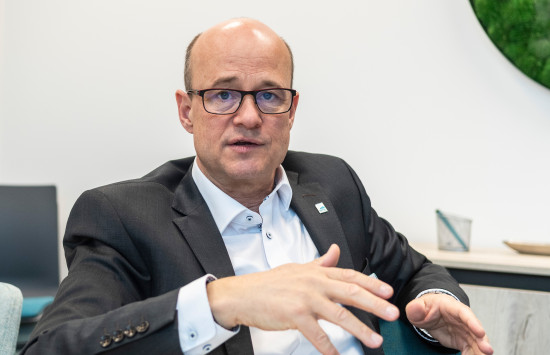
The area of smart lighting is also a huge topic. We have added to our range accordingly, including decorative products. For example, we now have a smart filament light that not only looks good, but can also be dimmed and has a warm white colour, as well as a wide range of additional colours.
Zigbee and the new Matter standard have become established, and our Connect.Z system is compatible with them. Connect.Z lights are also Alexa and Google Home compatible. Consumers are still unsure and don't want their own app and control technology for heating, coffee machines and lighting. Matter is set as a common language. Overall, smart is a good market, but it has to be sold and explained well.
How do you see the situation in the DIY sector?
We had all the relevant DIY store customers here and had some very good discussions, partly because we are showing more concept solutions again this year. Due to current developments, the focus of the range is shifting somewhat: the DIY store is tending to move away from decorative lighting and towards more functional lighting. We have taken this into account in our product range development.
We grew up in the DIY sector and it is still the largest customer group for Eglo. Since it is still an important sales channel for us, we want to deliver well-coordinated product ranges and concepts there so that we can successfully develop our cooperation further. DIY customers come here because we not only present them with individual products, but have already developed a POS placement including end customer communication. In the concept room, we show complete shelf solutions that can also be further developed with the customer.
During the coronavirus phase, when everything in Germany and Europe was being renovated and renewed, many people also replaced their lights. So there was a certain saturation that, I think, turned out to be greater than we all expected, both retailers and we in the lighting industry. Accordingly, it was difficult or impossible to maintain this level of sales. So we had to consolidate, which is what we are doing now.
And of course you can also see very clearly that the sales per square metre and the earnings per square metre are under pressure for our retail customers. Not only in the DIY store, but also in furniture stores and specialist retailers. So we have declining sales and demand is very strongly focused on problem-solving items. Functional, bright light is needed, so quite normal wall and ceiling lights. These are now selling much better than the decorative pendant lights I have over the dining table.
This means that the light is currently being given a little less space. This is a new distribution battle that is taking place, where everyone is looking to maintain their position. We are in talks with all our major customers to revise placement modules and concepts. The focus is more on functional light and decorative light is being reduced.
Our so-called Basic Range also presents luminaires with reduced packaging: in cut cases, a neutral cardboard box or simply shrink-wrapped for the entry-level price. It is precisely this entry-level product that is currently in demand among price-sensitive end customers.
I am very curious to see what KI will bring to the DIY store and retail sector. It will probably be used in merchandise management systems and product management. It is already being actively used in translation.


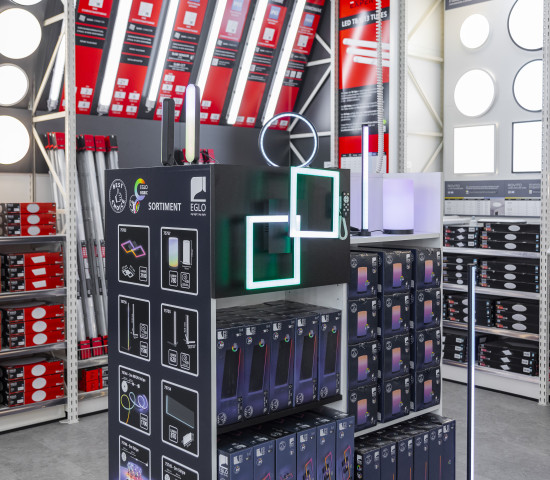
The difficult economic situation will probably have cost you some of your expected turnover. Have you had to let employees go, or have you been able to avoid that so far?
Last year, when we realised that the sales results were not going to be as forecast, we restructured relatively quickly. In this context, we did not fill some of the positions that became vacant. However, there were no major waves of redundancies, thank goodness.
But in terms of sales, it was not a good year and I think you will hear the same from everyone else if you are honest. This is not a German problem, not even a European one. It is a global situation.
The start of this year has also been restrained. From mid-January, customers suddenly disappeared, we simply lack the frequency. If you ask around in your own microcosm, people are currently worrying about other things than decorative lighting: car insurance has become more expensive, electricity bills, holidays and so on. And one point where I have the feeling that consumers are currently more willing to spend money than with us is in the restaurant industry.
How do you see the future? Is there light at the end of the tunnel for the lighting industry?
If we look at interest rate developments and the general economic situation, we are suffering from the economic downturn in the construction sector. If apartments are not being built, then no ceiling lights are being installed either. However, I have heard positive signals. We need economic stimulus measures. I think the federal government has recognised this too. In general, and from our customers, we hear that everyone assumes that things will stabilise somewhat in 2024, but that it will still be a difficult year. However, we believe that things will start to pick up again in 2025 and 2026.
Is re-shoring an issue for you, or do you still produce a lot in Europe anyway?
Eglo is a bit different within the lighting industry, because many are more like wholesalers: they basically go to the Far East and just pick out products in China's showrooms. That's different at Eglo, we are also manufacturers ourselves and have three locations.
One of them is actually in the Shenzhen region of China. A second production plant is in India and the third, oldest, is in Hungary. The location in Hungary is very, very important to us, especially in light of the developments of recent years, and we will continue to develop and maintain it as a production site.
How long has the plant in India been in existence?
We built the first production hall there in 2017. Was it wise foresight that China could become more difficult? In any case, it was a very visionary, early step that our owner took at the time. The extreme cost advantage that China used to offer is of course slowly disappearing. That's why a shift towards India is a logical consequence. And when the plant in China was completely closed during the corona crisis, India and Hungary picked up the slack. We were one of the few manufacturers who were able to deliver throughout. We are not 100 per cent dependent on China, thank God, which also helps with other supply chain problems.
How is the Sauerland Lighting Week developing?
In addition to customers from the markets, the market managers or department heads from the electrical lighting sector, we have many participants from the region as well as from franchise companies such as Eurobaustoff or Hagebau. In this respect, the Light Week is actually very, very important for us.
The Sauerland Light Week is now the leading trade fair for the home lighting sector, and it is becoming more and more international every year. We have just had the Kesko Senukai DIY chain from Lithuania here, for example. Customers from France and the Benelux countries came, as did those from Eastern Europe. The Light Week is becoming more and more popular every year.
And here in the Sauerland, we can respond to customers in a more targeted way and take the time to do so, without the hustle and bustle of a large exhibition hall. It has a much, much better quality and a better culture of conversation.
The questions were asked by Oliver Mengedoht.

 Menü
Menü




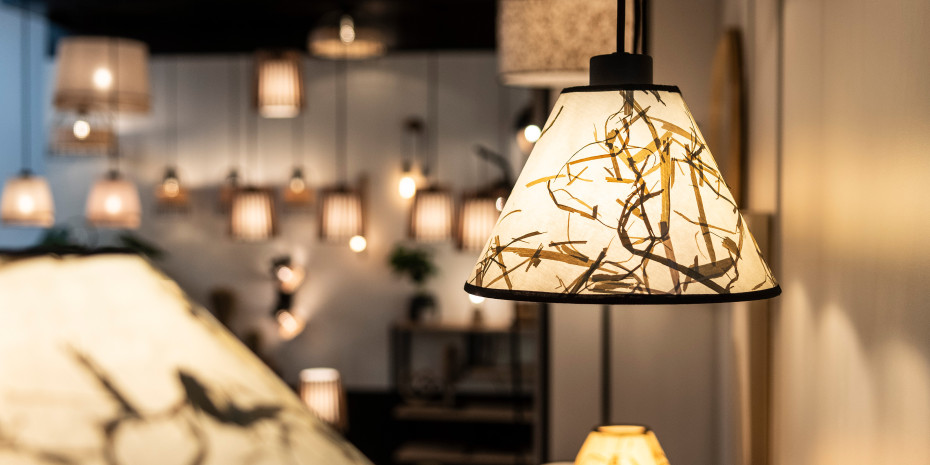
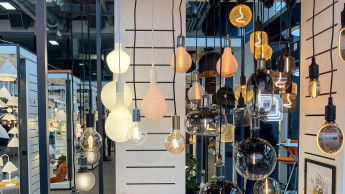
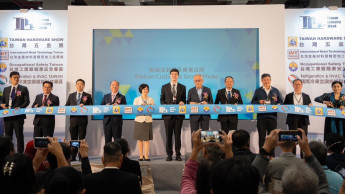
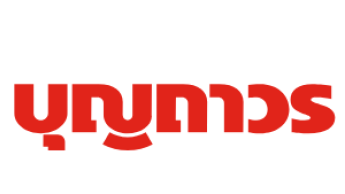



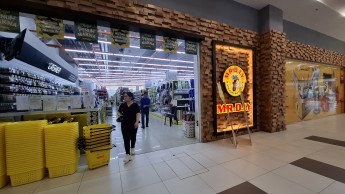
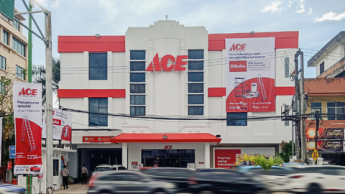
 Newsletter
Newsletter